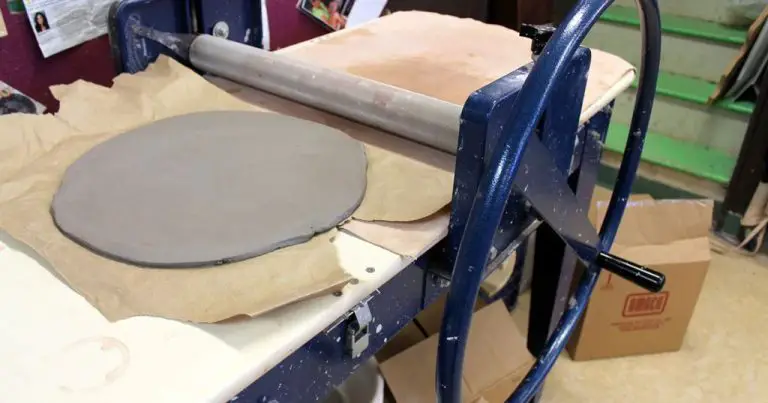Is Volcanic Ash Good For Anything?
Volcanic ash is a natural byproduct of volcanic eruptions. It consists of tiny fragmented particles of rock, minerals, and volcanic glass that are ejected into the air by explosive eruptions (“What Is Volcanic Ash, Anyway?”). The ash forms clouds that travel long distances from the volcano and fall as a gritty or sandy material known as tephra or volcanic fallout (“Volcanic Ash Fall–A “Hard Rain” of Abrasive Particles”). While volcanic ash can certainly wreak havoc, causing damage to infrastructure, air travel, human health, and agriculture, it also has some surprising benefits. When used appropriately, volcanic ash can improve soil fertility, serve as a construction material, and even provide health and cosmetic benefits.
Fertilizer for Soil
Volcanic ash contains important minerals that can enrich soil. It provides nutrients like potassium, phosphorus, calcium, and magnesium that plants need to thrive. When added to soil, volcanic ash can improve drainage and the ability to retain water. This helps prevent soil compaction and provides aeration for plant roots. Volcanic ash also increases microbial activity and growth in the soil, which further supports plant health and development.
Volcanic ash has been used historically and in modern times to help rejuvenate damaged or unproductive soil. The minerals in the ash provide a quick boost to plant growth and crop yields. Studies have shown that applying volcanic ash to soil can increase the availability of essential nutrients, stimulate root development, and improve overall soil fertility. In fact, the fertility of some of the most productive agricultural soils in the world is partly derived from past volcanic eruptions depositing volcanic ash.
While there are benefits, volcanic ash fertilizer also needs to be applied carefully. It can temporarily increase soil pH and salinity to excessive levels if over-applied. Recommended application rates range from 2-5 tons per hectare. When used appropriately, volcanic ash offers an organic and sustainable fertilizer option.1
Construction and Building Material
Cement and concrete made with volcanic ash can be extra strong and durable. Volcanic ash is added to cements, concretes, bricks, and ceramics to improve their properties. The minerals in the ash provide bonding properties that increase strength. According to Processing of volcanic ash, volcanic ash has pozzolanic properties and can be an effective supplementary cementing material when used in concrete. Regular testing is required to ensure the quality of volcanic ash used in construction.
Skin Care Products
Volcanic ash contains minerals like silica and zinc that can provide benefits for skin health and appearance. The abrasive texture of volcanic ash makes it effective as an exfoliant to gently remove dead skin cells. Studies have found that volcanic ash can also absorb excess sebum and oil while cleansing pores1. This makes it useful for addressing conditions like acne. Many skin care companies have started incorporating volcanic ash into products like facial soaps, masks, and scrubs.
Specific skin benefits attributed to volcanic ash include:
- Exfoliating and deep cleansing pores
- Absorbing excess oil and sebum
- Helping clear up blemishes and minor skin rashes
- Soothing red, inflamed skin
- Lessening the appearance of wrinkles
While volcanic ash can provide benefits, it may be too harsh and abrasive for some sensitive skin types. It is often recommended for use specifically on oily, acne-prone skin instead. Overall, volcanic ash is emerging as a popular natural ingredient in many skin care products and regimens focused on deep cleansing and exfoliation.
Cleaning and Polishing Agent
Due to its abrasive texture, volcanic ash is good for cleaning and polishing. It is used for things like metal polishes, toothpaste, and household cleaners. As explained in the National Park Service’s article Volcanic Ash: Cleaning Museum Objects, the ash helps remove stains, tarnish, and dirt through its scrubbing ability.
The abrasiveness of volcanic ash makes it effective at buffing away dull or dirty surfaces. When incorporated into cleaning products, the ash acts as a gentle scouring agent to break down stubborn dirt and grime. Its fine powder consistency gives it a polishing effect on items like silver or other metals.
Volcanic ash cleaning and polishing products provide an alternative to harsh chemical cleaners. The ash serves as a natural scrubbing agent that cleans through physical abrasion rather than chemical reactions. This makes it useful for delicate surfaces like antiques or museum artifacts where chemicals could cause damage.
Filtration Medium
The porous nature of volcanic ash makes it useful for filtering applications. Volcanic ash can be used to filter contaminants in water and remove odors and colors.
According to a research study, volcanic ash filtration was used as a pre-treatment for drinking water in Uganda and helped control algae proliferation (Use of volcanic ash and its impact on algae proliferation in drinking …).
Volcanic ash filtration is also utilized in pharmaceutical processing and other industrial applications that require the removal of impurities or contaminants.
The porous structure and surface properties of volcanic ash particles make them effective at capturing and retaining substances as fluid passes through.
Source of Geothermal Energy
Areas with volcanic ash deposits can be good sources of geothermal energy. The ash insulates and retains heat from volcanic activity, allowing geothermal wells to be built to harness steam or hot water energy (https://brainly.com/question/1458313). The heat from magma and lava flows gets trapped under layers of volcanic ash, which acts as a thermal insulator. This allows high temperature gradients to be maintained and tapped for geothermal power generation. Places like Iceland and New Zealand, with significant volcanic activity, utilize geothermal energy for electricity and heating (https://www.weegy.com/?ConversationId=SFE6G2B5). Overall, the presence of volcanic ash deposits provides favorable conditions for viable geothermal energy projects.
Revenue Source

Volcanic ash deposits are mined and sold commercially as a major revenue source for some volcanic island nations. According to Volcanic Ash – Overview, News & Similar companies, the volcanic ash industry is worth <$5 Million globally.
Tourism Draw
Volcanic scenery and ash deposits can boost tourism. People want to see active volcanoes and landscapes formed by ash. Volcanic ash products like soaps and jewelry are popular souvenirs. According to https://explorersweb.com/volcanic-tourism/, volcanic areas attract over 500,000 tourists per year. The article discusses lava chasers who indulge in volcanic tourism by traveling to sites of past and present geothermal activity.
Conclusion
Volcanic ash has proven to be a versatile and useful material in many different ways. From enhancing soil fertility and crop growth, to being used as an ingredient in skin care products, volcanic ash displays an impressive range of beneficial properties.
Some interesting facts about volcanic ash include:
- Volcanic ash is rich in minerals like iron, magnesium, calcium, potassium and silica which make it great for farming and agriculture.
- The abrasive nature of volcanic ash makes it ideal for use as a cleaning and polishing agent.
- Volcanic ash contains traces of sulfur which can help treat skin conditions like acne when used in skincare routines.
- The pozzolanic properties of volcanic ash allow it to be used as a cement replacement in concrete and mortar.
While volcanic eruptions can certainly be destructive, they also create valuable materials like ash that we have learned to utilize in many constructive ways. With continued research and innovation, we may uncover even more uses for volcanic ash that could benefit society.




